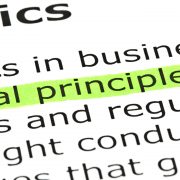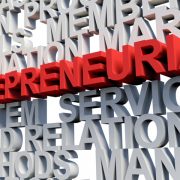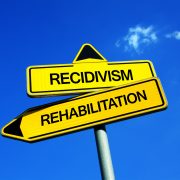Entrepreneurs refuse to accept the status quo. Their function is to create new economic value for their customers, and thereby to profit for themselves, both financially and psychically. They do this by introducing new products and services to the marketplace, designing and implementing new processes, adding value to others’ inventions by turning them into market-wide innovations, and offering new pleasures and satisfactions and solutions that no-one knew of or imagined.
The pursuit of new is a refusal to accept the status quo. That includes any and all existing market conditions and structures, any monopolistic incumbent firms, any regulatory barriers, any capital shortages, any “it can’t be done” pessimism.
We think of entrepreneurs in economic terms, market movers dealing in goods and services, taking dollars and cents in exchange. But the entrepreneurial mindset and the entrepreneurial process can be applied in many more contexts where the status quo requires a challenge and change is called for. Functional entrepreneurship is a process that can be described as a series of steps:
- Development of entrepreneurial belief. An entrepreneur develops and continually adapts and polishes a belief about the status quo that no-one else holds. The belief is that the status quo is inadequate, wrong, or susceptible to improvement. For whom? For customers – i.e. not for the entrepreneur herself but for others. The status quo is under-serving others, and the entrepreneur is determined to fix that error. The entrepreneur, of course, expects to get something back in return, which could be psychic fulfillment (a sense of purpose and meaning from being the status quo buster) as well as profit (which is the financial signal to the entrepreneur to keep going). It all starts with dissatisfaction and the belief in the possibility of eliminating it.
- Alignment with customers: As the entrepreneur develops the belief, she or he continuously aligns with (potential) customers. Am I getting this right? Does what I believe align with your preferences? If I change things in the way I am thinking, will you endorse the change? You are the customer, and you are my guide. You have the final decision.
- Implementation: Given supportive feedback from customers (“the market”), the entrepreneur moves ahead with the new initiative – designing, building, and marketing it. It’s offered to the market as a value proposition (“I think you might like this – here’s why”). The market (i.e. customers) responds yes, no or conditionally (“I’d like it better if………). The entrepreneur receives the feedback, reshapes the value proposition and re-offers it until the customer confirms “Yes! That’s it!”
This mindset and the BAI process – Belief, Alignment, Implementation – can be applied not only in business but in any context or setting where there is dissatisfaction with the status quo on which an entrepreneur can build a belief and a customer can express a preference. As a result, we can imagine a wide range of fields in which the entrepreneurial mindset can be applied to society’s benefit.
Institutional Entrepreneurship
Many of the institutions in our society have reached all time lows of disrespect. Representative democracy is being widely questioned, and the institution of Congress has a very low approval rating (18% job approval – and moving lower – according to Gallup Poll in mid 2020). Also in the Gallup Poll, half of Americans revealed “somewhat negative” or “very negative” ratings of the federal government. We are losing confidence in our money, and the Federal Reserve, the institution charged with preserving its integrity and value, yet does the opposite. Similarly, we re losing respect for educational institutions that prefer to indoctrinate our children rather than educate them.
In all these instances, there are entrepreneurs who have developed the belief that they can bring improvements to a corroded status quo. Even democracy can be innovated. Or, alternatively, we could re-think the entire founding of the US. Entrepreneurs are the ones who initiate these changes.
Regulatory Entrepreneurship
Regulation is the context in which entrepreneurs work. The more thoughtful entrepreneurs question whether the context is unchangeable, and they find innovative ways to make change. Uber and AirBnB are recent multi-billion dollar examples of what’s possible. Uber is what contracted automobile transportation looks like when entrepreneurs question the regulation that keeps the restrictive taxi monopoly in place. According to Josh Johnston Airbnb is just what hotels look like without hotel regulations. Entrepreneurs can out-think regulators.
Social entrepreneurship
Social entrepreneurship is a term that is often misused to mean entrepreneurial initiatives that are conducted without a profit motive, aiming for a higher target of good for society that entrepreneurial capitalism can’t achieve. The true case is that all entrepreneurship is for social good, because society is simply another word for entrepreneurs’ customers, and entrepreneurs want them to do well. Entrepreneurs offer society more and more good things, while trying to use less and less of society’s resources (i.e. lower costs), thereby freeing them up for other social uses.
A great example of profit-directed social entrepreneurship is the initiative called Entrepreneur Zones, the brainchild of Dale Caldwell of Fairleigh Dickinson University’s Rothman Institute of Innovation and Entrepreneurship. With Entrepreneur Zones, Dr. Caldwell aims to solve problems of urban poverty, family instability and academic underachievement by establishing an environment where local residents can start and grow businesses and make them thrive, in n environment of shared purpose, supportive investment, training, mentoring and relaxed regulation. The goal is to improve society by making a profit, generating jobs, and creating the social environment in which families can pay their bills and their kids can do well in school.
Cultural Entrepreneurship
In November 2020, Frank Newport of Gallup wrote A Letter to Elected Representatives, From the Average American, based on what average Americans had told Gallup in surveys. One of the statements is this: “I have lost faith in many of our culture’s institutions in recent years”. The term cultural institutions can include many things from religion to the healthcare system. Gallup reports that Congress has by far the lowest confidence of all institutions, of course, but confidence in many of our other institutions is redoing too. The next lowest after Congress is big business followed by the news media (TV and Newspapers), the criminal justice system, and organized labor, then banks and public schools.
We can see entrepreneurial improvements emerging for all these institutions. Home schooling and private schools; fintech replacing many bank functions; reformers trying to change the criminal justice system; internet news outlets offering alternatives to mainstream news media. Consumers get to choose which of these innovations they’ll support. Entrepreneurs will continue trying to secure that support through integrity, earning trust, and giving great service, which is where so many of our institutions fail.
Entrepreneurs and entrepreneurship are society’s resources for continuous improvement of the status quo.













